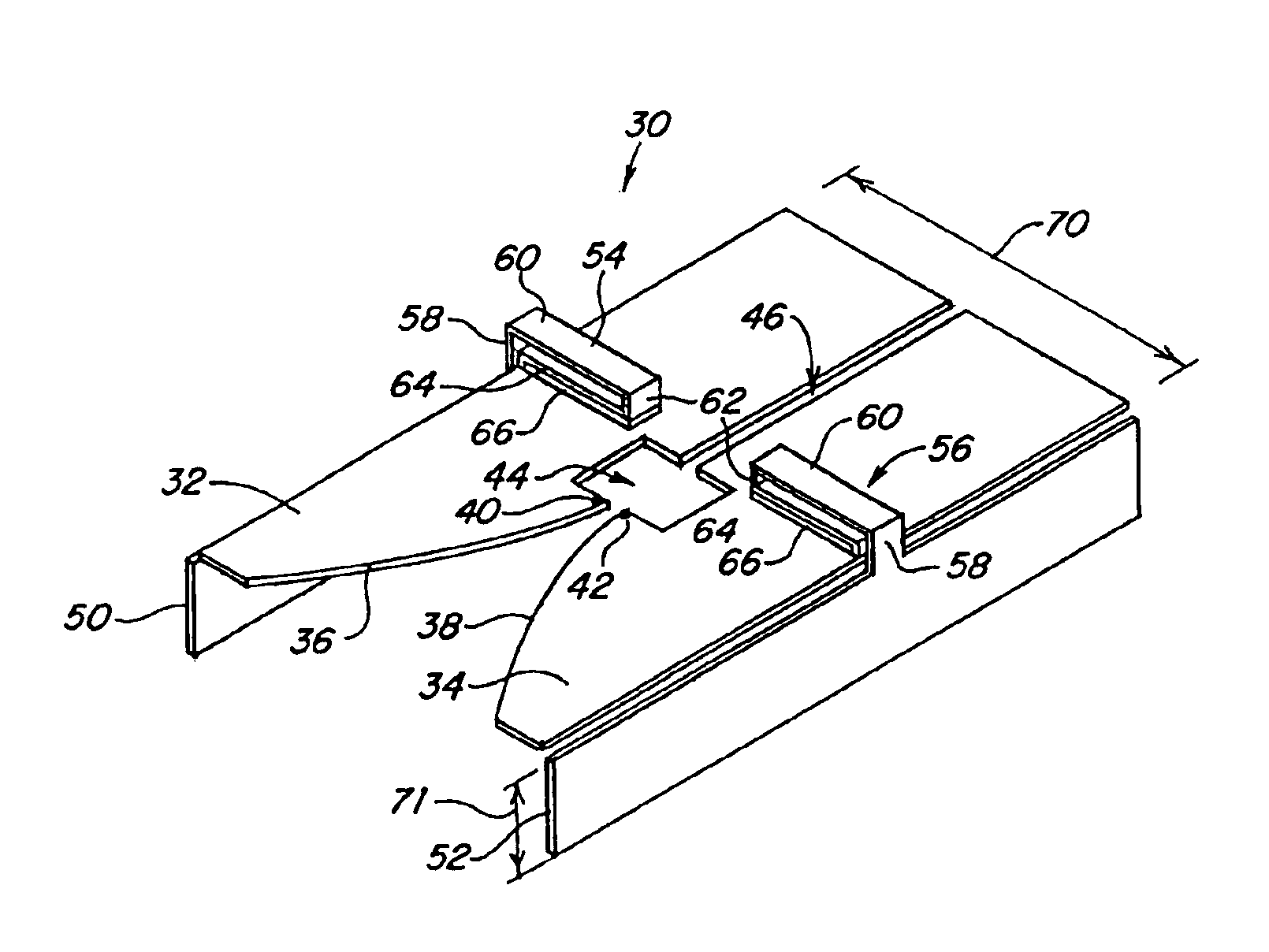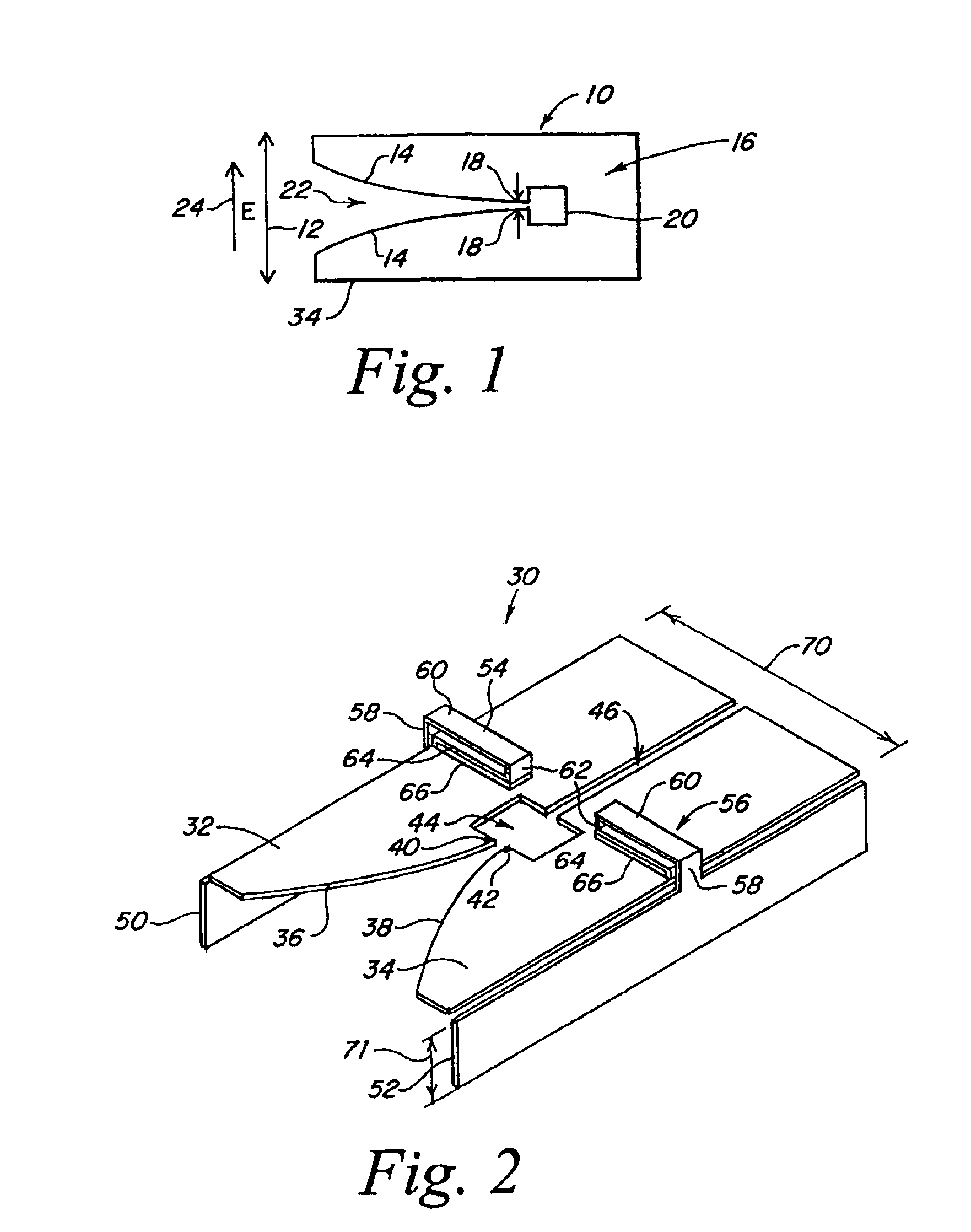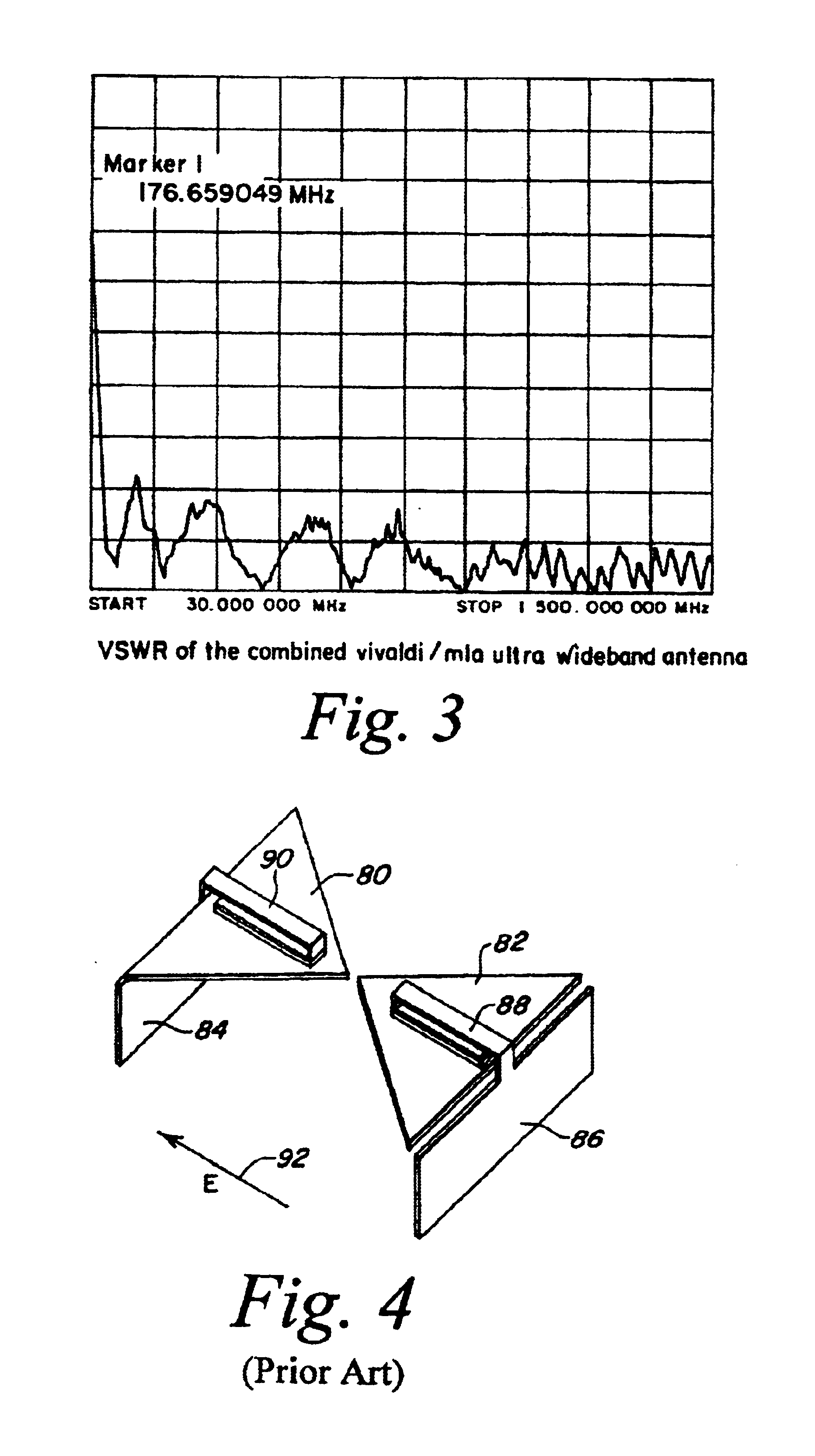Combined ultra wideband Vivaldi notch/meander line loaded antenna
a technology of vivaldi notch and notch, which is applied in the direction of slot antennas, antenna feed intermediates, antennas, etc., to achieve the effect of reducing low frequency cut-off, eliminating the possibility of creating grating lobes, and ultra wideband results
- Summary
- Abstract
- Description
- Claims
- Application Information
AI Technical Summary
Benefits of technology
Problems solved by technology
Method used
Image
Examples
Embodiment Construction
[0038]Referring to FIG. 1, a Vivaldi notch waveguide antenna 10 is illustrated as having an aperture 12 which is formed by exponentially shaped edges 14 in a plate 16. The antenna has a pair of feed points 18 which are adjacent the region of closest approximation of edges 14. Behind the feed point is a cavity 20, the purpose of which is to reflect back any rearwardly projecting radiation out through the notch which is defined by edges 14. The notch is therefore established by these edges as notch 22. Note that the E-field for the Vivaldi notch antenna Figure is as illustrated by arrow 24.
[0039]As mentioned hereinbefore, it is a feature of the Vivaldi notch antenna that its upper frequency cut-off is virtually unlimited. Thus it is typical for the Vivaldi notch antennas to operate from for instance from 100 MHz up to 10-20 GHz.
[0040]While this wide bandwidth operation is desirable, in some instance, the low frequency cut-off of such a Vivaldi notch antenna is restricted due to the fa...
PUM
 Login to View More
Login to View More Abstract
Description
Claims
Application Information
 Login to View More
Login to View More - R&D
- Intellectual Property
- Life Sciences
- Materials
- Tech Scout
- Unparalleled Data Quality
- Higher Quality Content
- 60% Fewer Hallucinations
Browse by: Latest US Patents, China's latest patents, Technical Efficacy Thesaurus, Application Domain, Technology Topic, Popular Technical Reports.
© 2025 PatSnap. All rights reserved.Legal|Privacy policy|Modern Slavery Act Transparency Statement|Sitemap|About US| Contact US: help@patsnap.com



